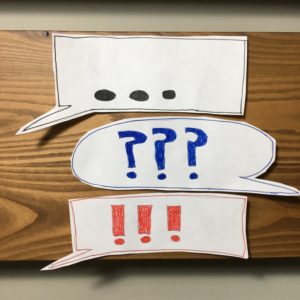Do you hate reading and writing? Would you much rather binge-watch a new series on Netflix instead? Let’s explore why choosing to watch entertainment media, rather than read it, is leading all of us down a slippery slope.
As a student, I am sure there is a high possibility that you drink coffee. But as a child you may have thought it tasted so terrible that it was crazy to think that anyone drank it. Now, I’m sure you can slam back cup after cup with ease. Similarly, if we compared reading and writing the same way, it could be argued that we may still be in our infant stage of literacy.

What do I mean by that? Language is funny—well, in the “crying, please shoot me” sense of “funny.” Those who were fortunate (or unfortunate) enough to practice reading and writing at an early age developed a skill set that they used so often that it got easier and easier for them. Meanwhile, those who found it challenging were subsequently left behind—and left to easier forms of media consumption, like television (or, these days, the internet).
This, perhaps, is why some choose to read a book over watching TV, while others will select TV over a good book. We have been conditioned to one or the other, or, strictly speaking, have acquired a taste for either reading or watching television. When given the opportunity for option A or option B and one selects option A, given the same choice again and again one will most likely keep choosing option A.
Familiarity and comfort win over the strange and the unknown. For example, when ordering from a restaurant menu, you are far more likely to select something you have had previously opposed to something you can hardly pronounce (I’m looking at you, Worcestershire sauce). This heterophobia (as I use this term here, I refer to the fear of the “other”) scares us from the choices we’ve left behind again and again.
For lack of a better word, we tend to live in our “bubbles” surrounded by what we believe to be our choices made solely by a tiny person inside our head, a person who is pulling the strings for our clunky bodies—someone who’s completely detached from influence and is capable of independent decisions.
Sadly, this tiny person does not exist (I mean, seriously?); the choices we’ve made are better understood as building blocks from previous choices. You don’t think about ordering a Big Mac at a Chinese restaurant because that building block isn’t for that project. That is to say, choices are what we can choose from; what about what we can’t choose from?
